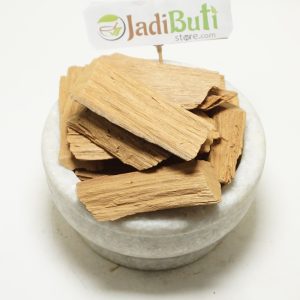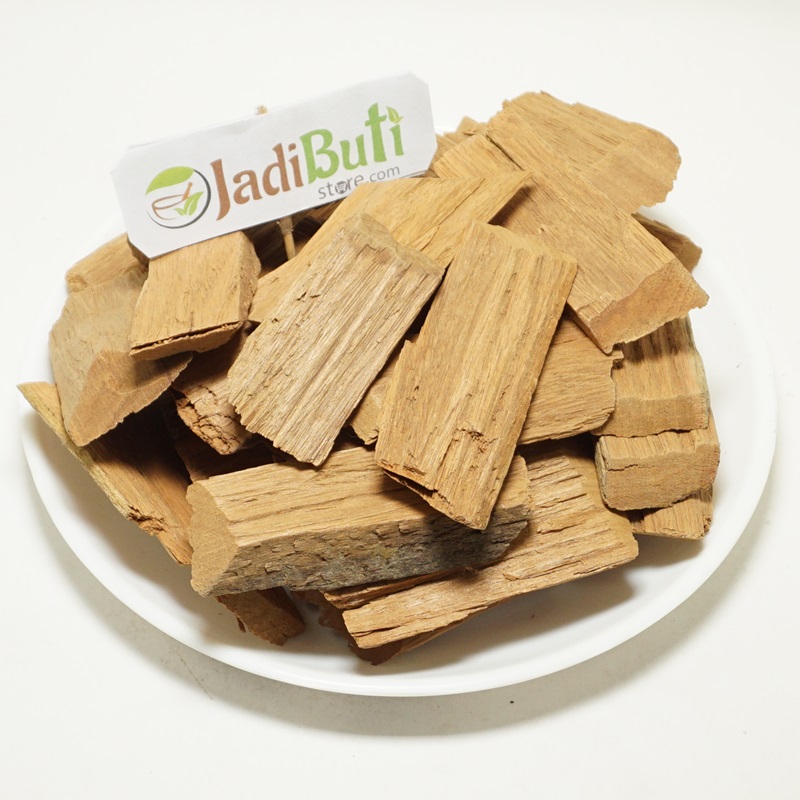P
Showing 37–45 of 45 results
-

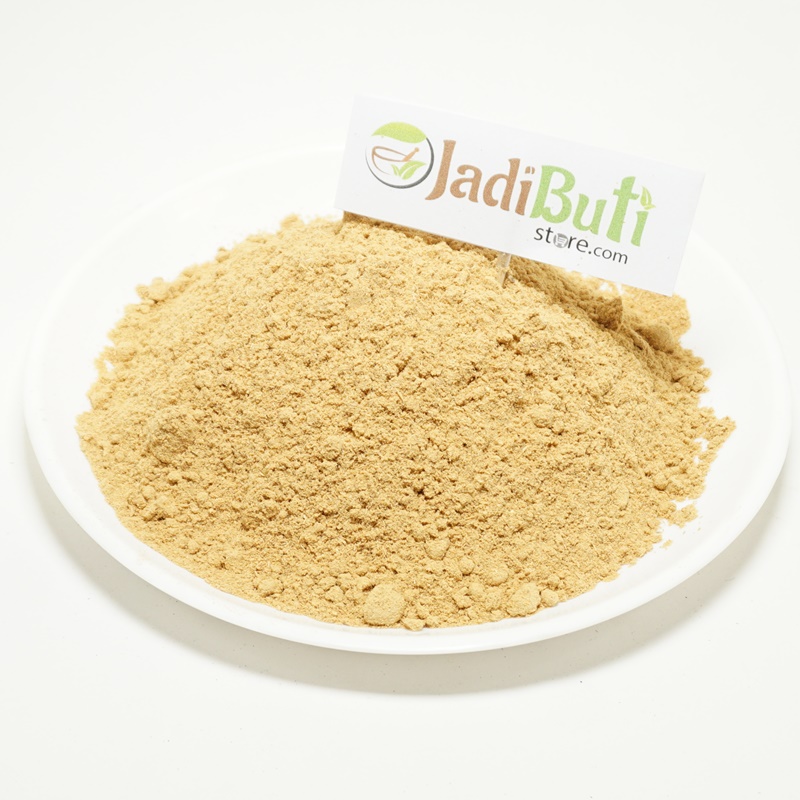
Safed Chandan powder – सफ़ेद चंदन – White Sandalwood powder – Pterocarpus santalinus
₹280.00 – ₹3,565.00Quick ViewWhite sandalwood powder is a fine powder made from the heartwood of the Santalum album tree, which is native to India and other parts of Asia. It has been used for centuries in Ayurveda, the traditional Indian system of medicine, as a natural remedy for various health and beauty conditions. White sandalwood powder is rich in antioxidants and has anti-inflammatory, antiseptic, and astringent properties. It is a popular ingredient in skincare, hair care, and medicinal products. It can be used to soothe and moisturize the skin, reduce acne and dark spots, promote hair growth, and relieve sunburn and inflammatory conditions. White sandalwood powder is also used in aromatherapy and meditation practices for its calming and grounding effects on the mind.
Ayurvedic Safed Chandan (White Sandalwood):
Ayurvedic Classification Description Rasa (taste) Bitter, astringent, sweet Guna (qualities) Light, dry, cool Virya (potency) Cooling Vipaka (post-digestive effect) Sweet Dosha effect Pacifies Pitta and Vata doshas Karma (actions) Cooling, soothing, anti-inflammatory, anti-bacterial, and anti-viral Dhatu (tissue) affinity Works primarily on the plasma, blood, and reproductive tissues Srotas (channel) affinity Works primarily on the respiratory, digestive, and reproductive channels Prabhava (special effect) Calming and cooling effect on the mind and body -
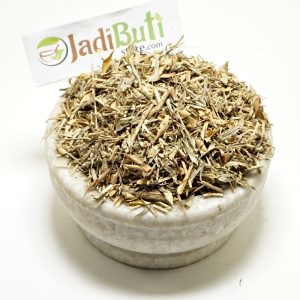

Sarphokha – सरफोखा – Purple Tephrosia – Tephrosia purpurea
₹190.00 – ₹1,455.00Quick ViewSarphoka (Tephrosia purpurea):
Common Name: Sarphoka, wild indigo, purple tephrosia, fish poison plant
Scientific Name: Tephrosia purpurea
Family: Fabaceae
Parts Used: Whole plant, roots, leaves, seeds
Ayurvedic Properties:
- Rasa (taste): Bitter (tikta), Pungent (katu)
- Virya (energy): Hot (ushna)
- Vipaka (post-digestive effect): Pungent (katu)
- Doshas (constitutions): Pacifies Kapha and Pitta
Health Benefits:
- Digestive health
- Respiratory health
- Skin health
- Liver health
- Anti-inflammatory and analgesic properties
- Anti-cancer properties (preliminary research)
Note: Sarphoka should be used under the guidance of a qualified Ayurvedic practitioner. It is not recommended for pregnant or lactating women and should be used with caution in individuals with liver or kidney disease.
-

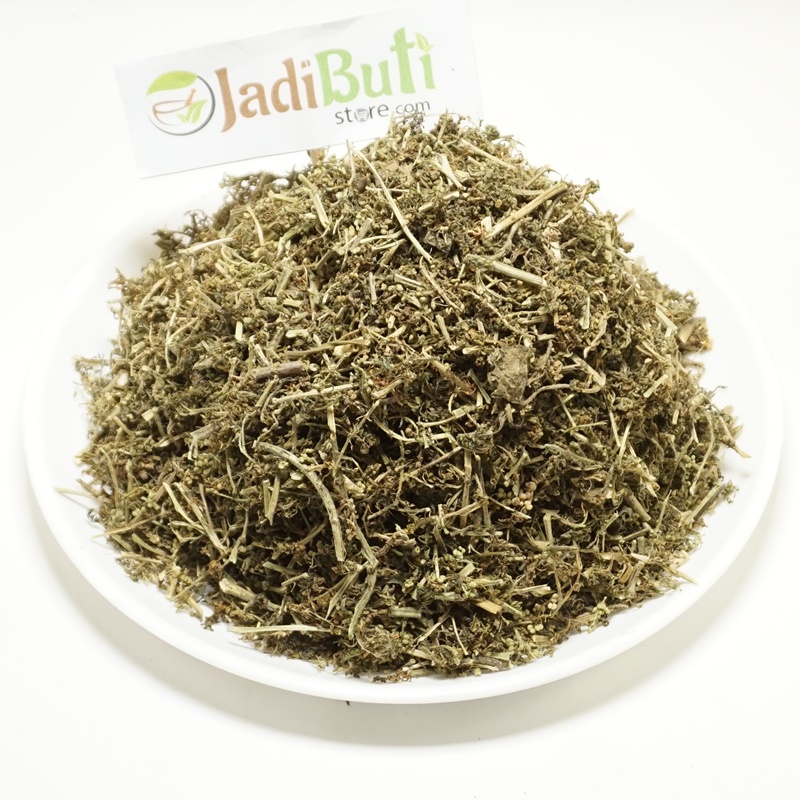
Shahtara – शाहतारा – Common Fumitory – Fumaria officinalis
₹320.00 – ₹2,595.00Quick ViewCommon Fumitory, Shahtra | Botanical Name: Fumaria officinalis
Family: Papaveraceae | Parts Used: Aerial parts
Ayurvedic Properties:
- Rasa (Taste): Bitter, Astringent
- Guna (Quality): Light, Dry
- Virya (Potency): Cooling
- Vipaka (Post-Digestive Effect): Pungent
- Doshas: Pacifies Pitta and Kapha doshas, may increase Vata in excess
Ayurvedic Uses:
- Supports liver health
- Improves skin health
- Improves digestion
- Relieves respiratory issues
- Purifies blood
- Boosts immunity
- Improves eye health
- Supports urinary health
- Relieves joint pain and inflammation
- Calms the mind
-
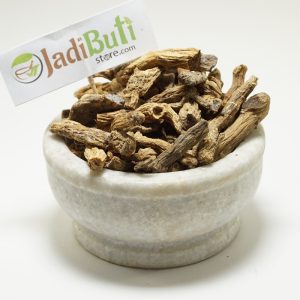
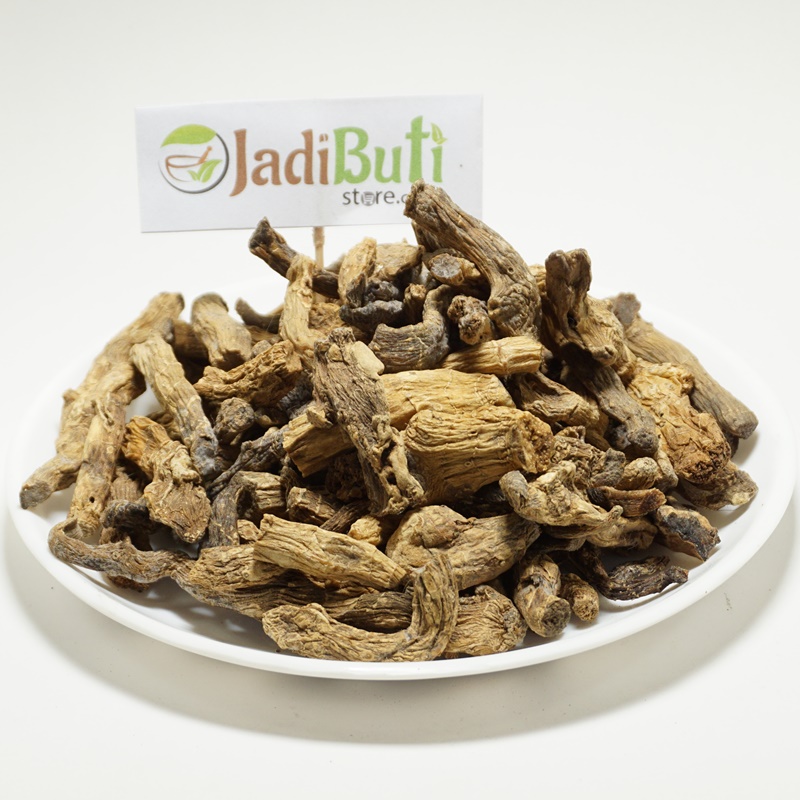
Shakakul mishri – शकाकुल मिश्री – Wild Parsnip – Pastinaca sativa
₹220.00 – ₹1,685.00Quick ViewCommon Name: Wild Parsnip
Scientific Name: Pastinaca sativa
Family: Apiaceae
Description: Wild Parsnip is a biennial or perennial plant that is native to Europe and Asia but has also been naturalized in North America. It can grow up to 5 feet tall and has a yellow-green stem with deeply divided leaves. The plant produces umbrella-shaped clusters of small yellow flowers in the summer. Its fruit is a small oval-shaped seed that is usually brown in color.
Uses: Wild Parsnip has some culinary uses and is often used as a medicinal herb. The root and leaves of the plant can be used in soups, stews, and other dishes. In traditional medicine, Wild Parsnip has been used to treat a variety of ailments, including indigestion, coughs, and rheumatism.
Toxicity: Wild Parsnip can be toxic due to the presence of chemicals called furocoumarins in its sap, which can cause skin irritation and sensitivity to sunlight. Contact with the sap can result in severe skin burns and blisters, similar to a severe sunburn. Therefore, it is important to wear protective clothing and gloves when handling or removing Wild Parsnip plants.
Distribution: Wild Parsnip is found throughout Europe, Asia, and North America. It is often found in fields, meadows, and along roadsides.
Conservation Status: Not listed as endangered or threatened.
-
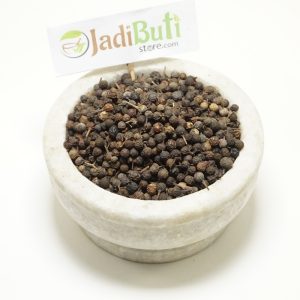
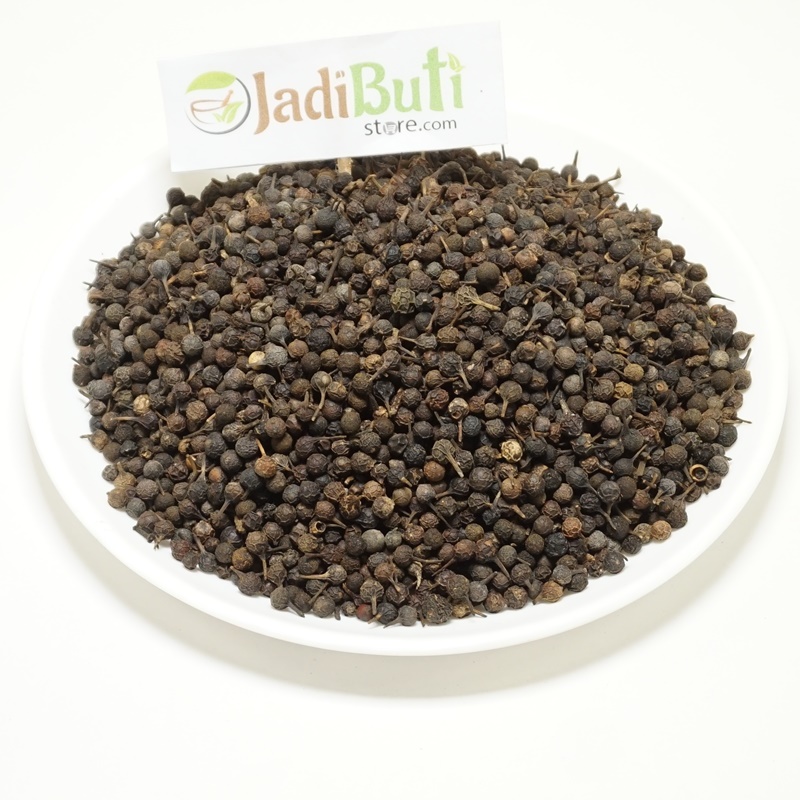
Sheetal chini – शीतल चीनी – Cubebs – Piper cubeba
₹480.00 – ₹3,975.00Quick ViewCommon Name: Cubeb Pepper, Tailed Pepper
Scientific Name: Piper cubeba
Plant Family: Piperaceae
Native Region: Java and other Indonesian islands
Traditional Uses: Piper cubeba has been used in traditional medicine to treat respiratory conditions, digestive disorders, urinary tract infections, oral health problems, and sexual dysfunction.
Active Compounds: Piper cubeba contains compounds such as cubebine, cubebol, and cubebin, which have anti-inflammatory, antimicrobial, and diuretic properties.
Forms: Piper cubeba is available in the form of dried fruit, powdered fruit, and essential oil.
Health Benefits: Piper cubeba is believed to have several health benefits, including respiratory health, digestive health, anti-inflammatory and antimicrobial properties, urinary tract health, oral health, and sexual health.
Precautions: Piper cubeba may cause gastrointestinal discomfort or allergic reactions in some individuals. It may also interact with certain medications, so it’s important to consult with a healthcare professional before use.
-

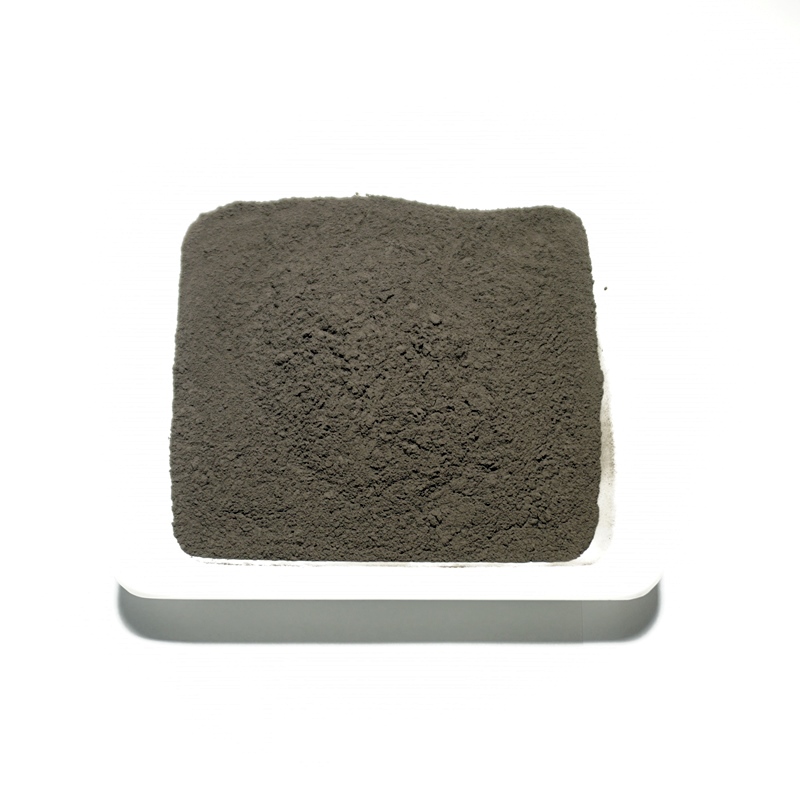
Shilajit Powder Pure – शुद्ध शिलाजीत पाउडर – Pure Asphaltum Powder
₹1,400.00 – ₹18,200.00Quick View(Organic) Shilajit Powder Pure – शुद्ध शिलाजीत पाउडर – Pure Asphaltum Powder.
- Nutrient-rich: Shilajit powder is rich in a variety of nutrients, including minerals, vitamins, and antioxidants. These nutrients help to support overall health and wellbeing.
- Antioxidant: Shilajit powder is a rich source of antioxidants, which help to protect against oxidative damage and promote healthy aging.
- Anti-inflammatory: Shilajit powder has anti-inflammatory properties, which can help relieve pain and reduce swelling.
- Energy booster: Shilajit powder is believed to have energy-boosting properties, making it a popular choice for those looking to improve their physical and mental performance.
- Supports immune system: Shilajit powder is also believed to support the immune system, helping to strengthen the body’s ability to fight off infections and diseases.
- Versatile: Shilajit powder can be easily added to various foods and drinks, making it a versatile and convenient supplement to include in your diet.
- Traditional use: Shilajit powder has been used for centuries in traditional Indian medicine, particularly in Ayurveda, for its potential health benefits.
- Natural product: Shilajit powder is a natural product, derived from the decomposition of plants that have been compressed between layers of rock for thousands of years.
By understanding these key features of shilajit powder, you can better appreciate its potential health benefits and determine whether it is a good fit for your health and wellness needs.
-
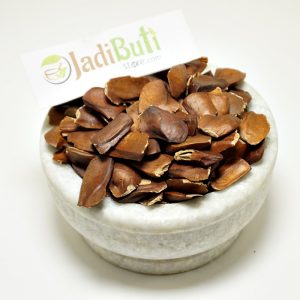
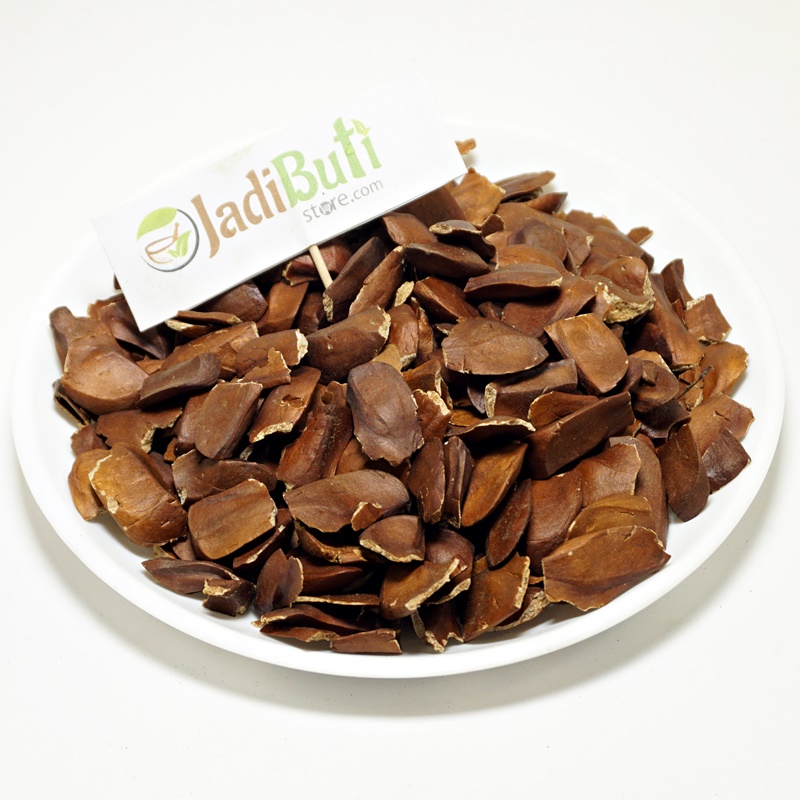
Sugar Badam – शुगर बादाम – Diabetes Almond – Swietenia Macrophylla
₹140.00 – ₹1,100.00Quick ViewSugar Badam is also known as Sugar Badam Kadwa, Samundari Badam, Miracle Fruit, Sky Fruit, King Fruit, Diabetes Bitter Almonds, Samundari Badam, Miracle Fruit, Sky Fruit, King Fruit.
Suagr Badam Name in different languages:
Suagr Badam in English – Sweet almond
Suagr Badam in Hindi – Baadam (Meetha)
Suagr Badam in Latin – Prunus amygdalsu
Suagr Badam in Sanskrit – Vatad (Madhur), Vatabh, Vatbeeri, Netropam phal
Suagr Badam in Marathi – Baadam
Suagr Badam in Gujrati – Baadam
Suagr Badam in Bengali – Bilayati baadam
Quality:
Sweet almond is heavy, smooth, sweet, hot and stimulant. It brings the stool out easily. It is expectorant. It increases the bile and urine. Sweet almond enhances sperm count, body strength and vigour. It also increases breast milk and regulates disturbed menstrual excretion. It makes the nerves-system strong. Sweet almond is used in the cases of vattadisorders, weaknesses of nerve and brain, dyspepsia, cough caused by Vatta, anuria and dysuria, white leucorrhoea and dysmenorrhoea.
-

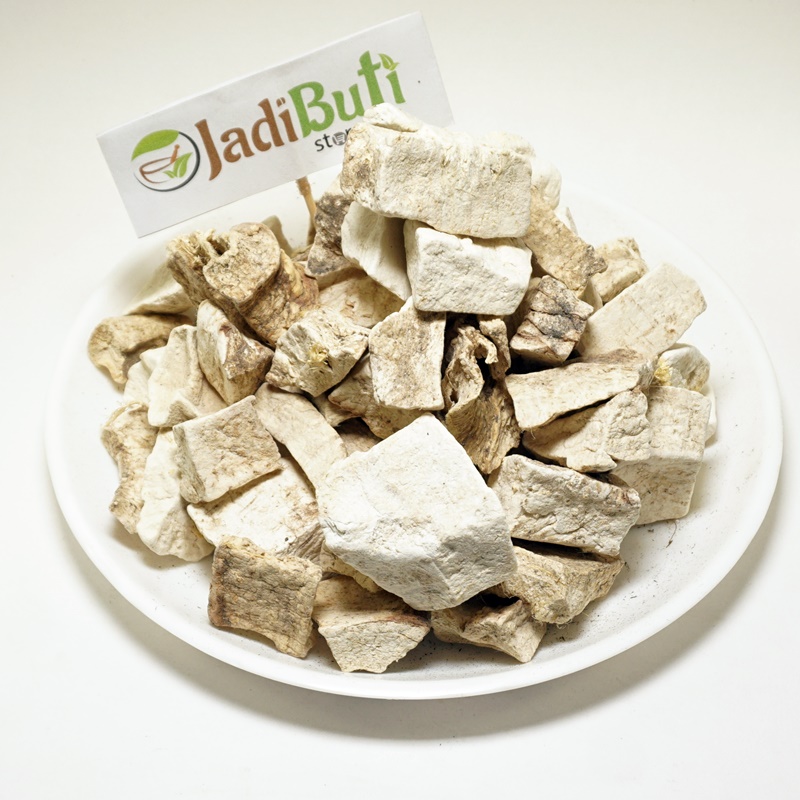
Vidari Kand – विदारी कंद – Indian Kudzu – Pueraria tuberosa
₹110.00 – ₹870.00Quick ViewVidari Kand (Pueraria tuberosa)
Other Names: Indian kudzu, Vidarikand, Vidhari Kanda
Description: Vidari Kand is a perennial climbing plant with tuberous roots, native to India. It belongs to the legume family and has been used in traditional Ayurvedic medicine for its medicinal properties.
Health Benefits: Vidari Kand is believed to have a variety of health benefits due to its rich content of bioactive compounds such as flavonoids, saponins, and isoflavones. It is used as an adaptogen, a natural aphrodisiac, and is believed to improve function and fertility in both men and women. It is also used to treat a range of health conditions such as diabetes, respiratory disorders, skin diseases, and more.
Forms: Vidari Kand is available in various forms such as Natural & powder.
Precautions: Vidari Kand is generally safe when used appropriately. However, it may interact with certain medications and should be used with caution in pregnant and breastfeeding women. As always, it is important to consult a qualified healthcare professional before using Vidari Kand for medicinal purposes.

